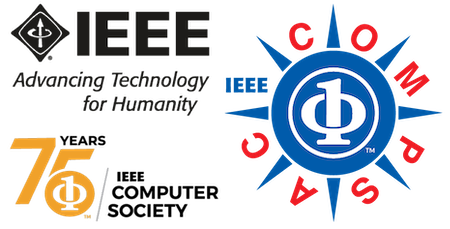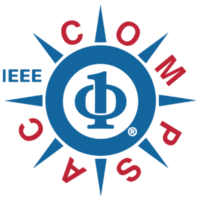Panel Discussion: Deriving Past, Present, and Future Tech to More Intelligent and Resilient Digital Realities for a Collaborative World
There is the philosophical question of “does history repeat itself”. One learns from the past to affect the present, which builds our future. Advances in technology are built upon previous innovations. New technologies are derived from existing technologies. The IEEE leverages past and current technologies to advance work on new and emerging technologies through serving as a catalyst for developing new innovations, products and services.
IEEE Future Directions serves as an incubator for these new initiatives. One of its focus areas, Digital Reality serves to explore and enable the coming Intelligent and Resilient Digital Realities through collaboration among technologists, engineers, regulators, practitioners, and ethicists around the world. The Digital Transformation is fueled by advances in technology, such as Artificial Intelligence (AI), Machine Learning (ML), and applications using the copious amounts of continuously generated data. By leveraging these technologies and others developed such as Augmented Reality (AR), Virtual Reality (VR), and Digital Twins, the line between the physical world and the digital world will be increasingly less distinct. Applications are already quickly emerging across the broad fields of gaming, entertainment, medicine, automotive, education, manufacturing, enabling the sharing of services, and more.
Emphasis will be upon presenting practical applications and its implementations of interest to attendees. Subject matter expert speakers will comment on current and past implementations. Of course, the speakers will look ahead to the future.
Format: Participate in a livestream discussion with a panel of industry experts from several distinct fields who will provide their perspectives, observations, and predictions of the future.
The session will be broadcast via a Virtual Reality live view of the panelists without the need for any special equipment.
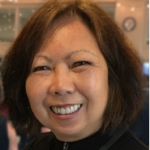 Panel Chair: Kathy Grise, Senior Program Director – IEEE Future Directions, supports new technology initiatives, is the IEEE staff program director for the Digital Reality Initiative, the IEEE Technology Navigator AI, Future Directions and Industry Advisory Board Committees, and manages the digital presence team for Future Directions. Previous initiatives included big data and cloud computing. Ms. Grise serves as the Technical Program Chair of the IEEE COMPSAC 2020 Symposium – Data Sciences, Analytics, & Technologies (DSAT).Prior to joining the IEEE staff, Ms. Grise held numerous positions at IBM, and most recently was a Senior Engineering Manager for Process Design Kit Enablement in the IBM Semiconductor Research and Development Center. Ms. Grise led the overall IT infrastructure implementation, and software development in support of semiconductor device modeling verification, packaging, and delivery; device measurement and characterization data collection and management, and automation for device modeling engineers. Ms. Grise is a graduate of Washington and Jefferson College, and an IEEE Senior member.
Panel Chair: Kathy Grise, Senior Program Director – IEEE Future Directions, supports new technology initiatives, is the IEEE staff program director for the Digital Reality Initiative, the IEEE Technology Navigator AI, Future Directions and Industry Advisory Board Committees, and manages the digital presence team for Future Directions. Previous initiatives included big data and cloud computing. Ms. Grise serves as the Technical Program Chair of the IEEE COMPSAC 2020 Symposium – Data Sciences, Analytics, & Technologies (DSAT).Prior to joining the IEEE staff, Ms. Grise held numerous positions at IBM, and most recently was a Senior Engineering Manager for Process Design Kit Enablement in the IBM Semiconductor Research and Development Center. Ms. Grise led the overall IT infrastructure implementation, and software development in support of semiconductor device modeling verification, packaging, and delivery; device measurement and characterization data collection and management, and automation for device modeling engineers. Ms. Grise is a graduate of Washington and Jefferson College, and an IEEE Senior member.
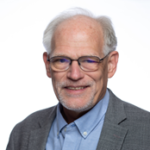 Tom Coughlin, President, Coughlin Associates is a digital storage analyst and business and technology consultant. He has over 42 years in the storage industry at several companies. He is a regular storage and memory contributor for forbes.com and M&E organization websites. He is an IEEE Fellow, Past-President of IEEE-USA, candidate for IEEE President-elect in 2021, and is active with SNIA and SMPTE. www.tomcoughlin.com/
Tom Coughlin, President, Coughlin Associates is a digital storage analyst and business and technology consultant. He has over 42 years in the storage industry at several companies. He is a regular storage and memory contributor for forbes.com and M&E organization websites. He is an IEEE Fellow, Past-President of IEEE-USA, candidate for IEEE President-elect in 2021, and is active with SNIA and SMPTE. www.tomcoughlin.com/
 Nicholas Napp, Founder, CEO Xmark Labs. As a co-founder of Xmark Labs, Nicholas is focused on the role of Virtual & Augmented Reality and Blockchain technologies in enterprise digital transformation. He enjoys working at the intersection of strategy, technology and corporate narrative to accelerate business growth.Nicholas has been working with VR and AR systems since the 1990s when his team at Rainbow Studios pioneered the use of VR in 3D animation production. He has launched over 40 products across a wide range of consumer and enterprise markets.Nicholas is also Chairman of the Board at FabNewport, a non-profit provider of maker-centered learning programs and services for middle school and older students.
Nicholas Napp, Founder, CEO Xmark Labs. As a co-founder of Xmark Labs, Nicholas is focused on the role of Virtual & Augmented Reality and Blockchain technologies in enterprise digital transformation. He enjoys working at the intersection of strategy, technology and corporate narrative to accelerate business growth.Nicholas has been working with VR and AR systems since the 1990s when his team at Rainbow Studios pioneered the use of VR in 3D animation production. He has launched over 40 products across a wide range of consumer and enterprise markets.Nicholas is also Chairman of the Board at FabNewport, a non-profit provider of maker-centered learning programs and services for middle school and older students.
 Louis Nisiotis is a Lecturer at the University of Central Lancashire, Cyprus Campus, specialising in Immersive Technologies, and their application in Cyber-Physical-Social Systems and in Education. He is interested in the use of VR/AR/MR technologies to support and foster the ongoing digital transformation of the industry and the society in general, to disrupt the way *we) humans interact with real and virtual environments, with our surroundings, and with each other. He is currently leading research in innovation and application of Immersive Technologies to support the digital transformation of a plethora of domains. His current research focuses on emerging a new type of Cyber-Physical-Social Eco-Society of systems that seamlessly blend the real with virtual worlds. He is also leading research focusing on the use of Immersive Technologies and Virtual Environments to support and enhance education. He is a member of the IEEE Digital Reality steering committee, and a member of the Immersive Learning Research Network. He is also a Fellow of the UK Higher Education Academy, and a member of IEEE.
Louis Nisiotis is a Lecturer at the University of Central Lancashire, Cyprus Campus, specialising in Immersive Technologies, and their application in Cyber-Physical-Social Systems and in Education. He is interested in the use of VR/AR/MR technologies to support and foster the ongoing digital transformation of the industry and the society in general, to disrupt the way *we) humans interact with real and virtual environments, with our surroundings, and with each other. He is currently leading research in innovation and application of Immersive Technologies to support the digital transformation of a plethora of domains. His current research focuses on emerging a new type of Cyber-Physical-Social Eco-Society of systems that seamlessly blend the real with virtual worlds. He is also leading research focusing on the use of Immersive Technologies and Virtual Environments to support and enhance education. He is a member of the IEEE Digital Reality steering committee, and a member of the Immersive Learning Research Network. He is also a Fellow of the UK Higher Education Academy, and a member of IEEE.
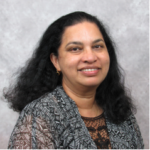 Jeewika Ranaweera is a principal hardware engineer working on high-speed microprocessors at Oracle. She received her Bachelor’s in CSE from ISPJAE in Havana, Cuba and her Master’s and PhD degrees in ECE from the University Of Toronto, Canada. She is an IEEE Senior Member and a steering committee member for IEEE Future Directions and Digital Reality Initiatives. Jeewika authored an eBook about her engineering journey for IEEE Women in Engineering to inspire others to follow STEM careers and illustrated the 1stchildren’s book published by IEEE. Recently she delivered a Keynote on “Successful Leadership Development in STEAM Careers,” at the IEEE LAEDC 2020, WIE/YP Networking session in Costa Rica. She is passionate about delivering talks on Quantum Computing, and the need to have a diverse environment to eliminate “Bias in AI” that discriminates minority. She also shared her unique insight via a podcast on areas where immersive technologies benefit humanity. She has been a speaker at the IEEE LAEDC, Drive World Conference, ChipChat, IEEE VTS, IEEE CCNC, AWE, IEEE TTM, Grace Hopper Conference, IEEE WIC Summit, and FB Developer Circle. She has also been a Track chair for the IEEE WIE ILC. She volunteers as a female technologist through the Oracle Education Foundation. As a Program Evaluator for ABET, she helps guide the content, quality and delivery of ECE degree programs around the world. She has authored and co-authored many papers published in technical journals, or presented at international conferences. Jeewika holds five US Patents.
Jeewika Ranaweera is a principal hardware engineer working on high-speed microprocessors at Oracle. She received her Bachelor’s in CSE from ISPJAE in Havana, Cuba and her Master’s and PhD degrees in ECE from the University Of Toronto, Canada. She is an IEEE Senior Member and a steering committee member for IEEE Future Directions and Digital Reality Initiatives. Jeewika authored an eBook about her engineering journey for IEEE Women in Engineering to inspire others to follow STEM careers and illustrated the 1stchildren’s book published by IEEE. Recently she delivered a Keynote on “Successful Leadership Development in STEAM Careers,” at the IEEE LAEDC 2020, WIE/YP Networking session in Costa Rica. She is passionate about delivering talks on Quantum Computing, and the need to have a diverse environment to eliminate “Bias in AI” that discriminates minority. She also shared her unique insight via a podcast on areas where immersive technologies benefit humanity. She has been a speaker at the IEEE LAEDC, Drive World Conference, ChipChat, IEEE VTS, IEEE CCNC, AWE, IEEE TTM, Grace Hopper Conference, IEEE WIC Summit, and FB Developer Circle. She has also been a Track chair for the IEEE WIE ILC. She volunteers as a female technologist through the Oracle Education Foundation. As a Program Evaluator for ABET, she helps guide the content, quality and delivery of ECE degree programs around the world. She has authored and co-authored many papers published in technical journals, or presented at international conferences. Jeewika holds five US Patents.
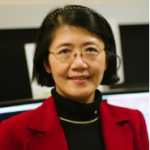 May Wang is a Wallace H. Coulter Distinguished Faculty Fellow and full professor in the Departments of Biomedical Eng. and Electrical and Computer Eng. at Georgia Institute of Technology and Emory University. She is the Director of Biomedical Big Data Initiative, a Kavli Fellow, a Georgia Cancer Coalition Distinguished Scholar, a Petit Institute Faculty Fellow, and AIMBE and IAMBE Fellows. She is in Board of Directors in American Board of AI in Medicine. She is also selected into Georgia Tech Provost’s Emerging Leader’s Program and elected into Executive Committee of IAMBE in 2021. Professor Wang received BEng from Tsinghua University China, and MS/PhD degrees from Georgia Institute of Technology. Her research is in Biomedical Big Data Analytics with a focus on Biomedical and Health Informatics (BHI) for predictive, personalized, and precision health (pHealth). Dr. Wang published over 250 peer-reviewed articles in referred journals and conference proceedings (12,000+ google scholar citations), and delivered over 240 invited and keynote lectures. She is a recipient of Georgia Tech Outstanding Faculty Mentor Award for Undergraduate Research and Emory University MilliPub Award (for a high-impact paper that is cited over 1,000 times).
May Wang is a Wallace H. Coulter Distinguished Faculty Fellow and full professor in the Departments of Biomedical Eng. and Electrical and Computer Eng. at Georgia Institute of Technology and Emory University. She is the Director of Biomedical Big Data Initiative, a Kavli Fellow, a Georgia Cancer Coalition Distinguished Scholar, a Petit Institute Faculty Fellow, and AIMBE and IAMBE Fellows. She is in Board of Directors in American Board of AI in Medicine. She is also selected into Georgia Tech Provost’s Emerging Leader’s Program and elected into Executive Committee of IAMBE in 2021. Professor Wang received BEng from Tsinghua University China, and MS/PhD degrees from Georgia Institute of Technology. Her research is in Biomedical Big Data Analytics with a focus on Biomedical and Health Informatics (BHI) for predictive, personalized, and precision health (pHealth). Dr. Wang published over 250 peer-reviewed articles in referred journals and conference proceedings (12,000+ google scholar citations), and delivered over 240 invited and keynote lectures. She is a recipient of Georgia Tech Outstanding Faculty Mentor Award for Undergraduate Research and Emory University MilliPub Award (for a high-impact paper that is cited over 1,000 times).
